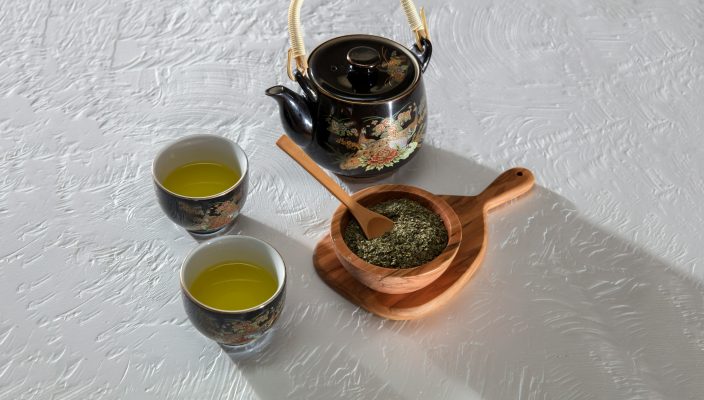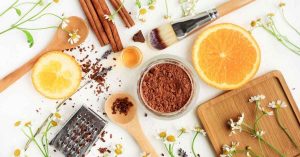Introduction
Hormonal balance is key to feeling your best—think stable moods, steady energy, and a smoothly running body. Hormones like estrogen, progesterone, cortisol, and thyroid hormones regulate everything from your metabolism to reproductive health. Stress, poor diet, or life changes like menopause can throw these systems off, leading to fatigue, mood swings, or irregular periods.
Enter herbal teas: nature’s time-tested remedies. Packed with bioactive compounds, they’ve been used in traditional medicine systems like Ayurveda and TCM for centuries. In this post, we’ll break down how herbal teas may support hormone health, which ones to try, and tips for safe sipping.
Why Herbal Teas Are a Game-Changer for Hormonal Health
- Phytoestrogens: Plant-based compounds that modulate estrogen, especially useful in cases of estrogen dominance.
- Adaptogens: Herbs like ashwagandha help the body manage cortisol, which in turn stabilizes other hormones.
- Liver Support: Herbs like milk thistle help metabolize and remove excess hormones via liver detoxification.
- Anti-Inflammatory Benefits: Chronic inflammation contributes to hormone imbalances; herbal teas help reduce it.
List of Herbal Teas and Their Benefits
Below is a curated list of herbal teas known for their potential to support hormonal balance, along with their
specific benefits and best uses. Each tea targets different hormonal needs, so you can choose the one that fits your goals.
- Chasteberry (Vitex) Tea 🍇
Supports progesterone, reduces PMS, and may regulate cycles. Best for PMS and fertility support. - Spearmint Tea 🍃
Reduces testosterone, which may help with PCOS symptoms like acne and hirsutism. - Ashwagandha Tea 🌿
Regulates cortisol and supports adrenal/thyroid health. Avoid if hyperthyroid. - Maca Root Tea 🥔
Boosts energy, libido, and mood; may ease menopausal symptoms. Some users may experience digestive upset. - Red Raspberry Leaf Tea 🫐
Tones uterus and eases menstrual cramps. Avoid in early pregnancy unless directed by a healthcare provider. - Licorice Root Tea 🍬
Supports adrenal function and reduces cortisol. Not recommended for people with high blood pressure. - Green Tea 🍵
High in antioxidants; supports insulin sensitivity and reduces inflammation. Contains caffeine. - Milk Thistle Tea 🌰
Promotes liver detoxification, which is essential for hormone balance. - Lemon Balm Tea 🍋
Calms nerves and lowers cortisol levels. Helpful for stress-related hormonal issues. - Ginger Tea 🌶️
Anti-inflammatory and digestive support—indirectly benefits hormones. May cause heartburn in large quantities.
Quick Reference Table
| Tea | Key Benefits | Best For | Cautions |
|---|---|---|---|
| Chasteberry | Balances estrogen & progesterone | PMS, irregular cycles | Avoid with dopamine meds |
| Spearmint | Reduces testosterone | PCOS, acne, hirsutism | Generally safe |
| Ashwagandha | Reduces stress/cortisol | Adrenal fatigue, stress | Avoid if hyperthyroid |
| Maca Root | Boosts energy, mood | Menopause, low libido | Possible stomach upset |
| Red Raspberry Leaf | Supports reproductive health | Menstrual cramps, pregnancy prep | Use with caution in pregnancy |
| Licorice Root | Regulates cortisol | Adrenal health | Raise BP if overused |
| Green Tea | Anti-inflammatory, supports insulin | General hormonal support | Contains caffeine |
| Milk Thistle | Supports liver detox | Hormone metabolism | May interact with medications |
| Lemon Balm | Reduces stress | High cortisol/stress | Generally safe |
| Ginger | Anti-inflammatory | Inflammation/digestion | May cause heartburn |
Sipping Safely: How to Use Herbal Teas Wisely
- Talk to Your Doctor: Especially important during pregnancy, breastfeeding, or if taking medications.
- Stick to 1–2 Cups a Day: To avoid overconsumption or side effects.
- Choose Organic: Reduce exposure to pesticides or additives.
- Cycle Your Teas: Alternate teas depending on your cycle or symptoms.
- Pay Attention: Stop if you experience side effects like upset stomach or dizziness.
Conclusion 🌟
Herbal teas can be a gentle, delicious way to support your hormonal health. From chasteberry for PMS to ashwagandha for stress, there’s likely a tea that fits your needs. While results vary and research is still ongoing, these herbal allies have long histories of use in traditional medicine. Pair them with a healthy lifestyle and consult your doctor for personalized advice. Cheers to balance and better health!







